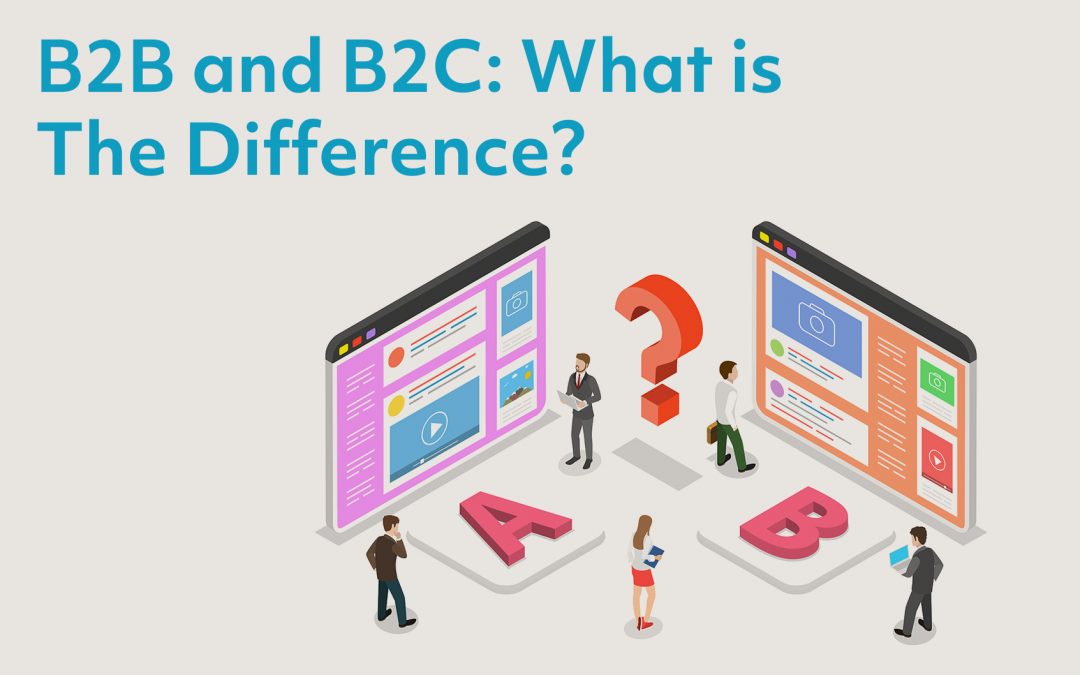B2B and B2C. These two are famous for causing a tonne of confusion in the marketing industry – yet they’re super important to get right. So, what do they actually mean? Is there even a difference?
Yes, and it’s actually a pretty big one. First, though, let’s go through the basics.
B2B Marketing
B2B is short for ‘Business to Business’, also known as a transaction between two businesses. A good example of B2B is a manufacturer and a wholesaler, or a wholesaler and a retailer. That’s because businesses need merchandise, and the best place to get that from is another business. This results in B2B transactions, and they are very different from those between a business and a consumer.
Which brings us onto the other type of transaction you need to know about.
B2C Marketing
B2C stands for ‘Business to Consumer’, also known as the transaction between a business and a consumer, an individual person. Unlike business-to-business transactions, the business is not the one buying merchandise here. In this case, it’s the individual. For example, if you open Amazon and buy something, you are completing a B2C transaction. As you can imagine, this is very different to B2B. It requires much less steps, and a lot less time.
Not to mention, a whole different set of intentions from the purchaser.
The Path to Purchase
Here’s where it gets interesting. So, we’ve covered that B2B means business-to-business, and B2C means business-to-consumer. You also know what these things mean by now. Now it’s just a case of figuring out what the difference is.
What makes them different is the ‘Path to Purchase’, also known as the customer journey. The path to purchase is identified by the steps taken when completing a transaction, and it has two different forms. During a B2B transaction, the business is often searching for four specific things: efficiency, price, productivity and ROI.
On the other hand, the consumer is looking for a completely different set of qualities in their transaction process, often things like enjoyment and personability, due to the fact that the purchase is not for business, but rather leisure.
This makes for two very different paths to purchase. In a B2B scenario, the business will be taking multiple steps before the transaction is completed, and it will likely take them a while to get these sorted out. This process goes something like this:
- Identify a problem or a need
- Explore solutions and conduct market research
- Create a requirement list
- Select a supplier (e.g. the B2B business in question)
These steps simply don’t exist in a B2C transaction. B2C is focused on an emotional motive – where the individual makes a purchase based on their own personal needs, or those of their loved ones, rather than for the ROI of a business. Rather than operating on behalf of a business, buying things for leisure is a whole lot easier. There’s more room for error, expression and there is often a fair amount of impulsivity involved. Due to this, the path to purchase for most individuals is a straightforward and direct path, often in the form of advertising through social media, mobile apps, or visiting an in-person store. The purchases are more often than not spontaneous – and sometimes with no motive at all.
This makes for very easy sales – something that businesses would love to make more of.
The Development of B2C
B2C transactions are remarkably easy to undertake and happen all the time. In fact, B2C transactions are so straight forward that it’s everywhere – with the rise of TikTok and other social media platforms copying their accessible and user-friendly format, B2C transactions are occurring at a progressively constant rate. Just taking a quick glance at the purchases made from TikTok Shop will give you a good idea at the rapid changes happening within the industry. 70% of B2B companies are altering their focus to a B2C approach in marketing over the coming year for this exact reason. This is going to look very interesting, considering the needs of businesses we’ve already covered.
What This All Means
So, we’ve established that B2B and B2C are extremely different.
But what does this mean for your marketing? It means that you need the right angle, expertise and experience when conducting your campaigns, depending on your client. Luckily for you, we do that pretty well over here, so we can help you out.
Regardless, it’s important to know the difference, as your campaigns are going to look dramatically different as a result. Maximise your reach and capabilities by understanding the basics, and you’ll be unstoppable.

